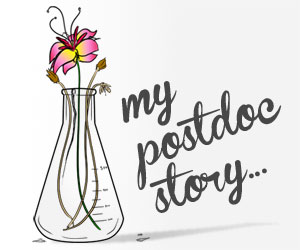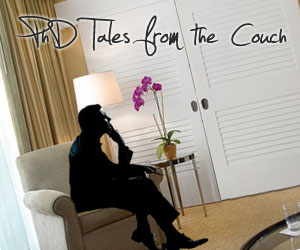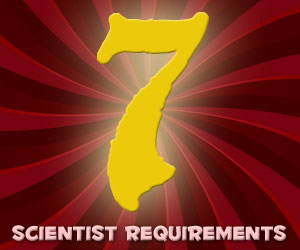I’m an avid reader of both science and non-science-related books. Does it look bad to have non-science books out on my desk? I know it’s my personal space, but I don’t want my PI to get the wrong impression.
-RM, grad student
We’re following in the tradition of open discussions among scientists that has resulted in important advances in both science and society.
by
I’m an avid reader of both science and non-science-related books. Does it look bad to have non-science books out on my desk? I know it’s my personal space, but I don’t want my PI to get the wrong impression.
-RM, grad student
by
by
I took over a nearly-completed project left behind by a grad student and my PI listed me as first author on the paper since I completed the project and wrote the manuscript. It is clear that several people in the lab resent the fact that I was given what they call an “easy paper” in my second year and now things are tense in lab. Is there anything I can do to ease the tension?
-Anonymous, grad student
by
 You know what would be really upsetting? Getting eaten while copulating. And, were you to copulate in the vicinity of a mighty predator, out in the open, your risk of getting fatally jiggy might be pretty high. Us humans generally (though not exclusively) avoid this by having sex in a house or hotel room, and our natural predators are few and far between. But what about all the other creatures on the planet?
You know what would be really upsetting? Getting eaten while copulating. And, were you to copulate in the vicinity of a mighty predator, out in the open, your risk of getting fatally jiggy might be pretty high. Us humans generally (though not exclusively) avoid this by having sex in a house or hotel room, and our natural predators are few and far between. But what about all the other creatures on the planet?
by
 While nearly all of us face challenges during our postdoctoral years, we often feel alone in our struggles. In this series, we hope to share encouraging and uplifting stories of how other scientists were able to turn their situation around and move forward, despite a non-ideal situation. Like snowflakes, fingerprints, and nightmares, every postdoctoral experience is unique, so today we share the Postdoc Story of another successful scientist.
While nearly all of us face challenges during our postdoctoral years, we often feel alone in our struggles. In this series, we hope to share encouraging and uplifting stories of how other scientists were able to turn their situation around and move forward, despite a non-ideal situation. Like snowflakes, fingerprints, and nightmares, every postdoctoral experience is unique, so today we share the Postdoc Story of another successful scientist.
by
by
I will soon attend a TEM science workshop, and all the members of my lab are really impatient to have a perfect transmission of all the knowledge I can obtain in this workshop. I’m wondering if some users know some interesting tips or tricks to get the most out of this science workshop.
– Denis
by
 Today’s doctoral programs continue to prepare students for a traditional academic career path despite the inadequate supply of research-focused faculty positions. At the same time, PhDs who decide to pursue a non-academic careers are somehow considered failures or sell-outs by the Ivory Tower. However, a gaping hole remains in this type of reasoning. The academic training has ignored the many trainees who will pursue non-traditional positions. The facts are undeniable, and as Meghan Mott masterfully demonstrates with a series of eye-opening and alarming facts in her article Careers in Traditional Academia: Outlook Bleak, academia simply has no room for the newly minted PhDs. As a result, the majority of PhDs will have to pursue non-academic careers.
Today’s doctoral programs continue to prepare students for a traditional academic career path despite the inadequate supply of research-focused faculty positions. At the same time, PhDs who decide to pursue a non-academic careers are somehow considered failures or sell-outs by the Ivory Tower. However, a gaping hole remains in this type of reasoning. The academic training has ignored the many trainees who will pursue non-traditional positions. The facts are undeniable, and as Meghan Mott masterfully demonstrates with a series of eye-opening and alarming facts in her article Careers in Traditional Academia: Outlook Bleak, academia simply has no room for the newly minted PhDs. As a result, the majority of PhDs will have to pursue non-academic careers.
by
 Editor’s note: As part of an answer to a question in our recent interview, Mark Changizi shared his prescriptive guide for scientists that he used to give to all of his students as they entered the lab. We found the advice so valuable we decided to publish it on it’s own. The insights are not only timeless, but also form the basis of his upcoming book, Aloof.
Editor’s note: As part of an answer to a question in our recent interview, Mark Changizi shared his prescriptive guide for scientists that he used to give to all of his students as they entered the lab. We found the advice so valuable we decided to publish it on it’s own. The insights are not only timeless, but also form the basis of his upcoming book, Aloof.
by
Dear Dora,
I’m currently a masters degree student and plan to start a PhD next year. What I want most of all is an academic scientific career. However I have a health issue that is very annoying. I suffer from a lot of intense stomach aches, usually so bad that I have to lie down for the rest of the day. They usually occur late in the day and last through the evening and night – causing a lot of bad sleep. I have a very nice doctor, but there’s not much hope of finding a diagnosis or cure.